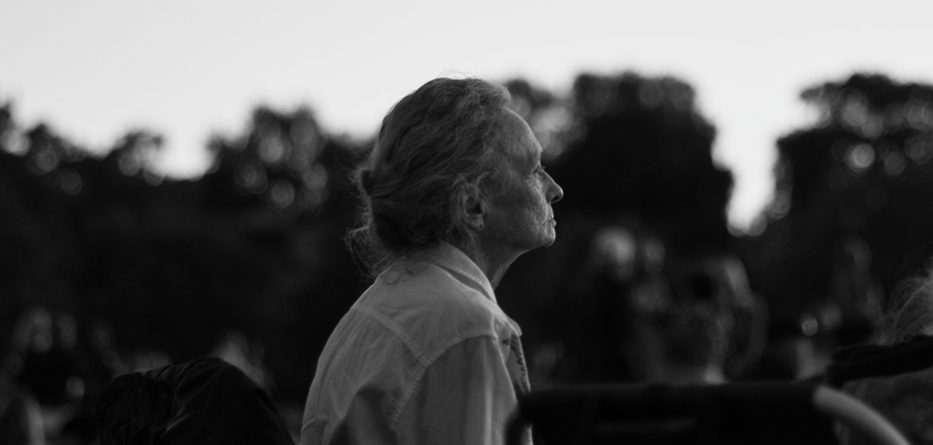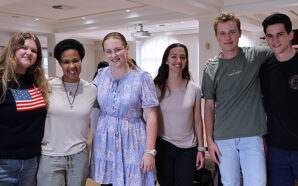At the funeral of an elderly woman I had known from my parish, two of her granddaughters were barely consolable as they delivered the eulogy. They spoke of their deep loss since the passing of their 94-year-old grandmother, a good and holy woman who had lived a life of love and service, and who had for some time been in a near non-responsive state. They eloquently described the power of this woman, who towards the end could barely speak and yet was the rock for their family until her death. Children and grandchildren came to her bedside from the various parts of Melbourne, drawn to the power of her presence even in the absence of words and actions.
The impact and power of this woman’s presence might be lost on a society that places a premium on youth and vibrancy, action and noise; a society that has lost its appreciation for stillness and the beauty of inner growth.
Intentionally or not, our society can often portray old age as a curse from God. Infatuated with the notion of youth and lured by the promise of re-discovering it through innumerable products, we slather creams and pump iron, nip and tuck bodies and de-emotise faces. We look for medical miracles that inject the spring back into our gait and overlook that which reinvigorates our soul.
And if these efforts are ineffective, we sometimes consider rash alternatives. A colleague of mine, for instance, is adamant she wants to die before her body begins to deteriorate.
However, this misses the point.
Old age is one of God’s greatest and kindest blessings to humanity. Its blessing is twofold: both to the one growing old and to the ones around them.
Freed from the responsibility of full-time work and busyness, old-age comes as a gentle opportunity for releasing ourselves from any spiritual bad habits and hardness of heart acquired over our lifetime. And for those still catching up in age, it is a chance to stand on the shoulders of the previous generation, learn from their mistakes, and build on their good deeds. Rather than a curse, age is God giving us a chance to grow towards perfection.
God’s promise to us is one of salvation, a restoration of the lost Paradise, an opportunity to live again for eternity with him. Yet, instead of looking forward to old age and the time when we will leave this world and come face-to-face with God in the next life, it is easy to want this life to go on forever.
We have a natural, healthy fear of death—we were not created to die, and instinct kicks in to prolong this notion of life for as long as possible. But again we miss the point. Regardless of our stage in life, we are most fully alive when we are alive in God. From our earliest years as a baby, when we are pure, innocent, malleable, utterly dependent, sweet-smelling bundles of goodness; to the cheeky, adventurous and curious years of teenage life; to the more confident, centred, wiser years of middle age, and returning to the gentler, serene surrender in old age, we are full of life when we are full of God. It is not the number of years left that dictates our life potential, but our focus on God; for God is our life source.
That is not to say ageing is easy. We may feel drained of energy, disheartened by life’s hardships, our once-strong faith a little worse for wear. Our bucket list might just be a reminder of unfulfilled dreams. Our bodies creak painfully, our faculties decline, our skin wrinkles. However, in order to revitalise ourselves, we might like to look beyond the vitamins and Botox, fancy cars and other fashionable answers to ageing, and instead restock on more time with God.
For the more we trust in God, the less the body is crippled by the troubles of life it cannot control. The more we seek to forgive, the fewer vengeful thoughts corrode our bodies. The more we bask in the radiance of God, the brighter our own complexion. The more we ingest the very source of life into us, the more God can renew the life in us, from the inside out.
And from this frame of mind, we see that our quest for eternal youth is in fact very much attainable, full of all that was intended for us at the inception of creation: a vibrant, free, joyful life for eternity.
In the meantime, we must be careful to not replace our intrinsic God-given desire for everlasting life with a desire for youthfulness in this life. For while the body declines as we age, there is much to be appreciated in an older life: experience, wisdom, serenity, maturity, courage, resilience and a bright inner spark; attributes fully gained only upon the gracious surrender of our younger years.
This view has been reinforced over the years by the blessing of many amazing older people in my life. Starting with my elderly Dad—he and I would have some wonderful, intense conversations. We would clean up the kitchen together after dinner, then, he with his coffee and I with my green tea, we would sit and solve the world’s problems. He showed me how to have a real, not overly-pious, friendship with God. He showed me humility, wisdom and, despite some ill-health towards the end of his life, a dogged enthusiasm for life and all it had to offer.
His sister, my gentle-hearted aunt, has just about perfected the difficult art of resilience and contentment, retaining a purity and brightness of spirit which belies the hardship of living through a war, having a mother who was blind, and her own recovery from a debilitating illness.
Another delightful older friend, who has loved me like a mother after my own mother’s death, abounds with raw energy and love for God, brushing off old-age niggles to show a determined and sincere love for neighbour.
A blessed and dear priest friend with an ever-so-solid trust in God’s handling of things, has, over the years, shown me the inner growth possible from always being authentic and honest with God and neighbour. For the young, the many older people in our parishes nurture us, encourage and support, guide and affirm us, sometimes by words and actions and other times simply by their kind, strong presence. Their battle-weary selves are a reassurance that we too can survive the challenges of life.
If we allow ourselves to sit still sometimes and really take note of those who have been blessed with long life (for it is indeed a blessing, according to Ephesians 6:3), we can better appreciate the bounty available in old age. And then we will be more likely to embrace the passing of time rather than deny it, until the moment we finally meet our Creator, when we can spend eternity forever young.
Nimmi Candappa has a deep interest in faith matters and, working in research, enjoys the challenge of living out her faith in a strongly evidence-based environment.
With thanks to Melbourne Catholic Magazine and the Archdiocese of Melbourne.








